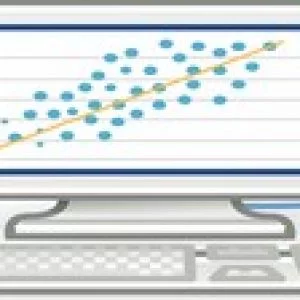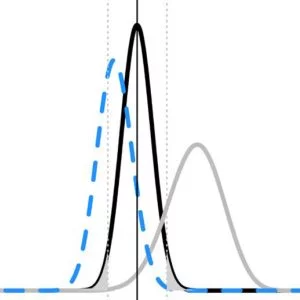
Welcome to the Advanced Linear Models for Data Science Class 1: Least Squares. This class is an introduction to least squares from a linear algebraic and mathematical perspective. Before beginning the class make sure that you have the following: – A basic understanding of linear algebra and multivariate calculus. – A basic understanding of statistics and regression models. – At least a little familiarity with proof based mathematics. – Basic knowledge of the R programming language. After taking this course, students will have a firm foundation in a linear algebraic treatment of regression modeling. This will greatly augment applied data scientists’ general understanding of regression models. The mission of The Johns Hopkins University is to educate its students and cultivate their capacity for life–long learning, to foster independent and original research, and to bring the benefits of discovery to the world.
Instructor Details
Courses : 7
Specification: Advanced Linear Models for Data Science 1: Least Squares
|
24 reviews for Advanced Linear Models for Data Science 1: Least Squares
Add a review Cancel reply
This site uses Akismet to reduce spam. Learn how your comment data is processed.

| Price | Free |
|---|---|
| Provider | |
| Duration | 11 hours |
| Year | 2016 |
| Level | Expert |
| Language | English |
| Certificate | Yes |
| Quizzes | Yes |

FREE






Do H L –
We need more advanced, theoretical courses on Coursera, like this one, in order to deeply understand the more general courses like Regression Models and Linear Models.
Hernan M –
As the name says it’s an advanced course. Take the challenge though! In my opinion the content is a must if you want to perform competently in data science.
Harold S –
Lectures are monotonous. Not enough exercises.
Lyu m –
good course!
Srikanth K S –
chapter on bases showing four equivalent forms was brilliant! Hoping to learn BLUE, GAMs in part 2.
Herson N M –
Advanced
Richard M –
Hard Topic, You must take all the basics in multivariate statistical analysis first.
Debarya J –
A wonderful course to study! Prof. Brian Caffo explains so well!
Dmitriy –
Good and not overloaded. Recommended.
Sarvesh P –
Good mathematical rigour for the analysis of linear models. Builds some good intuition for the geometry of least squares which helps in model result interpretation.
Xinpeng H –
I enjoyed the math and it helped me to review my linear algebra and got new intuitions on linear regression. But there are a few typos that need to be fixed. It would be better to open a forum and let student discuss with each other.
Jerome M –
Good course. Quite hard. Linear algebra should be your second language as it is assumed to be mastered. Exams should include some personal work.
Roney A B –
Very helpful! Tanks!
AC –
Great Course
Francisco R A –
The topics covered by this course were really relevant, and it allowed me to better understand many things I have been using blindly for years. That being said, the course preparation by the lecturer appears quite careless. The videos are difficult to follow, with the electronic pen not helpful to comprehend the handwriting and full of mistakes the lecturer needs to correct constantly. Moreover, the quizs have included errors apparently for a long time, as the forums reflect, and no one has corrected them so far. The book recommended for the course is still in a very poor state, not only unfinished but also full of mistakes, making the task of linking the content it includes with the lecturer’s explanations challenging at times. Fortunately, I did not pay for it, as it can be obtained for free if the student desires. However, those who spend the money the platform recommends to pay will have heavy reasons to be upset.
Jens L R –
Great, detailed walk through of least squares. Linear Algebra is a must for this course. To follow the last part requires knowledge of matrix (eigen?)decomposition, which derailed me somewhat.
Andrea G –
This course is very interesting and Professor Caffo is very good at teaching. The proposed material is not very well organised and even if there are multiple sources available (videos, book, YT videos) they all say the exact same things (literally): it isn’t helpful, only redundant. Moreover, I felt a lack of context: yes, it is only a 6 weeks course and yes there is a strict relationship with at least other 5 courses on Coursera (as a prerequisite) so it may be hard to contextualise. Nevertheless the material seems to be taken here and there from other courses/specialisations so you often have the feeling that you are missing something that may have been said in a previous lesson that does not belong to this course (and I am not talking about basic linear algebra stuff) or you wonder “what are we trying to prove? And why?”. Material desperately lacks homogeneity, and it’s easy to lose focus. Last but not least: R is a prerequisite, which is a bit strange since the topic is very theoretical (and there are no practical references throughout the course). R is mainly used by the professor to prove that theory is right (Wouldn’t be more interesting to take advantage of R’s plotting capabilities to have a visual result of theory?) or there are quiz questions that require the usage of R to get the answer (Why? Am I supposed to learn R or Least Squares?). Sometimes you feel like this is not a standalone, focused course, but an appendix of other specialisations. Overall it’s a good course, very interesting topic, made harder by material that is a bit collected here and there and put together without the care the subject would require. My suggestion is to enroll only after completing Statistical Inference and Regression Models (both by B. Caffo) so that language and context are the same.
John C –
Very thorough and rigorous. A great review for me.
Chad W L –
Very good
Zitong W –
Not an advanced level course.
Emanuel N –
The teacher is like explaining to himself with no idea of who is in the other side. He knows the material but the course is just so boring and not becuse of the material itself but because of the way it is tought.
Ryan G –
The coding videos with R are outdated. But this is to be expected since R is open source and changing rapidly. The code videos should be updated frequently to coincide with the latest release of R and R Studio. I like that code example content is placed into separate videos. The videos are very clear and easy to see. If lecture segments are re worked, I’d suggest writing in a single column, and keeping the new content always in the center of the screen. There is some inconsistencies in the notation, and some content is repeated too often. But it’s not like salt: too much isn’t nearly as bad as not enough.
Gustavo F –
El curso es bueno, sin embargo me gustaria que pusieran notas sobre las ecuaciones o un pequeno resumen, ya que yo al menos no tengo dinero para comprar los materiales.
Sean C –
I was expecting more practical examples in R.